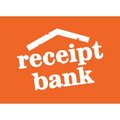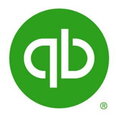Six Accounting Tips to Maintain a Better Cash Position
All business owners have a myriad of risks to look out for. Working-capital issues can be the most problematic for business owners. Some entrepreneurs start to get into trouble when they cannot pay employer remittances tax to the government and corporate taxes on their business income. Instead of paying these tax debts, some will opt to pay their employees and the rent to keep the lights on. This may work for a while, but eventually the government will demand you pay your back taxes. To avoid this stress, it is imperative to keep good records yourself or hire a professional accountant to ensure your business taxes are maintained. Along with these solutions, here are six accounting tips to get you to a better cash position forever:
- Separate yourself from the business;
- Educate yourself in accounting;
- Use a Certified Professional Accountant;
- Take advantage of accounting software;
- Pay your taxes on time;
- Plan for the worst;
1. Separate Yourself from the Business
You and your business are two separate entities. You must treat the business as if it is its own person or entity. Taking money from the business like it is your own personal bank account does not work in this scenario, which is as it should be. Another way to keep everything separate is to ensure that all business expenses are in the business’ name and that no business expenses are paid by you personally.
2. Educate Yourself in Accounting
One of the first things you need to do prior to opening a business is to have a financial education. Understanding financial statements and how to create a cash-flow projection is critical to the success of your business
Another great asset to have is to learn budgeting. Creating a budget and keeping track of your ‘actual versus budget’ will help you maintain your finances. The concept of keeping a receipt for every transaction is also another critical point to keep in mind. Having receipts attached to each transaction will get you in the habit of understanding what you are purchasing and why it is being purchased.
As a business owner, you have the right to take dividends as a payment method. Understanding how dividends are created—through owners equity and an accumulation of that income over the years—is critical. Having organized and reconciled books will mean that your financial statements and reports will be accurate. Having such financial literacy will help you manage your growth.
3. Use a Certified Professional Accountant
Hiring a professional accountant is one of the smartest things you can do as a business owner. Find a good fit, this person can help you navigate tough times, especially in the midst of the COVID-19 pandemic. For example, during major shutdowns, our clients benefited from our expertise in applying for subsidies.
4. Accounting Software
Use cloud accounting software. This will enable you to keep track of your accounting records from anywhere and use add-ons like receipts scanners to load in receipts to your bank reconciliations.
Having a cloud system can also allow your accountant or a professional to review financial reports with you simultaneously.
5. Pay Your Taxes On Time
One of the biggest ways to succeed as a small business is to pay your taxes. Most businesses fail because they do not pay their taxes and fall behind with the government. As a business owner, always make sure to put aside enough money to pay payroll taxes, HST, and corporate taxes.
6. Plan for The Worst
Although it may never come, plan for a black swan event. This means keeping your cost as low as possible and profit margin as high as possible. In good times, when cash is abundant, you can always reinvest into new marketing initiatives that you can grow your business with. Contrastingly, in bad times you can quickly close down some of these initiatives and save the cash.








